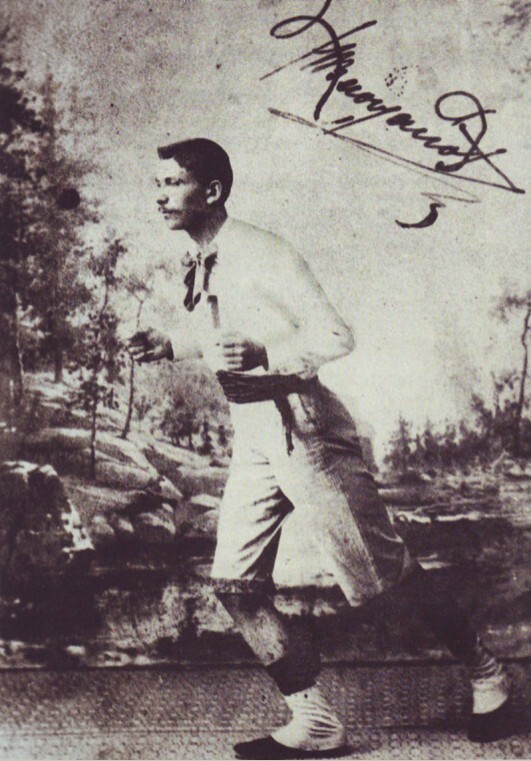WHERE THE GLORY OF THE MARATHON
MEETS OLYMPIC SPIRIT
Olympism is a common heritage of humanity
The Olympic spirit runs through the millennia, touching humanity's undiminished desire for athletic excellence.
Modern sports legends, such as marathon runner Charilaos Vasilakos, channel the ancient athletic spirit into contemporary sports. The Olympia International Marathon, dedicated to his memory, honours both the ancient Olympic ideal, as well as the first-ever modern Marathon winner in history.
Selecting to design the marathon on the footprints of the “Sacred Road”, pays tribute to one of the most iconic routes in athletic history, offers modern runners the opportunity to explore the Greek landscape that gave birth to the Olympic ideals, hoping to ultimately inspire them to become carriers of the omnipotent message of peace and democracy.
THE HUMAN ATHLOS.
The Peloponnese has always been a place of astonishing beauty. It is the land of Hercules, Agamemnon, Helen of Troy, Sparta, the 3rd of the Seven Wonders of the Ancient World (Statue of Zeus at Olympia), and of course the birthplace of the Olympic Games.
The ancient Greek term 'athlos' first appears in the Homeric poems. It represents the pursuit of perfection through physical achievement, and the refinement of qualities such as endurance, skill and virtue. Thanks to the legend of Hercules and his twelve impossible physical labours, it represents the optimism for overcoming humankind’s natural limits.
The birth of the Olympic spirit in ancient Greece was no accident. For the ancient Greeks, it was the culmination of a long process of imitating the gods they had invented.
IN THE FOOTSTEPS OF THE SACRED ROAD.
In ancient Greece, much like in today’s world, religion, culture and politics were intertwined. By 776 BC, the Olympic Games were the preeminent Pan-Hellenic athletic and religious event, celebrating Zeus, but also serving as an excuse for peace among all city-states.
On the eve of the Olympics, to ceremoniously celebrate this huge event, the Greeks performed one of the greatest peaceful hikes of Greek antiquity: the Sacred Procession. Athletes, coaches, priests, officials, Hellanodikai (Olympic judges), and theoroi (official envoys of Greek cities), all followed the sacred path.
On horseback and chariots, or on foot, the inhabitants of Elis and the surrounding areas, foreign visitors and pilgrims, thousands of people carrying their sacrificial offerings to Zeus, collectively joined the procession toward Ancient Olympia. Their arrival in the Stadium marked the beginning of yet another Olympiad of the ancient world.
Since 1936, the modern Olympic Games have continuously honoured the "Sacred Road", always including its route in every Olympic torch relay.
Join the race, be part of an ancient athletic legend, become a messenger of universal peace.

Harilaos Vasilakos (1875–1964), The First Marathon Race Winner in History.
Harilaos Vasilakos (1875–1964) is a pioneering figure in athletic history, celebrated as the winner of the first-ever Marathon race. On March 10, 1896, during the Panhellenic Games Marathon he became the first ever Marathon race winner in history. Just nineteen days later, on March 29, he was crowned silver medalist at the first modern Olympic Games Marathon, held in Athens. To this day he remains the event's youngest Olympic medalist.
Vasilakos’ legacy extends beyond his Marathon achievements. The gifted athlete introduced Race Walking to Greece. He supported the athletic culture throughout his life, often serving as an organizer, commissioner, judge or a guest of honour in athletic competitions. A revered figure by Greek society, he was honoured throughout his life for his foundational contributions to Greek athleticism.
The Olympia Marathon is held in his honour.
